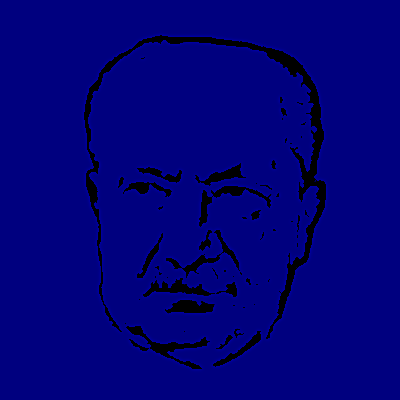The barbarism of Michel Henry: From an epithelial philosophy to the question concerning technology
Main Article Content
Abstract
In the first encounter with La barbarie (Michel Henry, 1987), and without the statement pretending to be general or in any way to hide individual prejudices when approaching a text of this sort, the question arises in many of us as to whether one is before a piece of naive irrationalism, a pessimistic paraphrase of issues already treated, for example, in Die Frage nach der Technik (Heidegger, 1954), or if, on the contrary, Henry offers in this book a radically renewed vision of the risk that culture (and what he defines as life) is in before the advance of an ideology, that of barbarism, which promulgates the knowledge of science as the only knowledge. Answering this question is precisely the main motivation for this work. Suspending prejudices about Henry's book, even at the risk of losing along the way much of the undeniable pretense of provocation that is an inextricable part of this work of him, we set out to point out the essential elements discussed in La barbarie, to find the resonances that these may have with the rest of Henry's work, and, in particular, to discuss the main themes of La barbarie in relation to another key text of the phenomenological tradition: Heidegger's considerations on The question concerning technology.
Downloads
Article Details

This work is licensed under a Creative Commons Attribution-NonCommercial-NoDerivatives 4.0 International License.
Authors retain ownership of copyright and reproduction rights.
Authors may make other independent and additional contractual arrangements for non-exclusive distribution of the version of the article published in this journal (e.g., inclusion in an institutional repository or publication in a book) as long as they clearly indicate that the work was first published in this journal.
Authors are allowed and encouraged to publish their work on the Internet (e.g. on institutional or personal websites) after the review and publication process, as it may lead to productive exchanges and to a wider and faster dissemination of the published work.
References
Bernet. R. "An intentionality without subject or object?". En Man and World 27, 1994. Pp. 231-255.
Domingo Moratalla T. "Introducción" en Henry, M. La barbarie. Tr. T. Domingo Moratalla. Caparrós, Madrid, 2006. Pp. 7-14.
Hart, J. "A phenomenological theory and critique of culture: A Reading of Michel Henry’s La Barbarie". En Continental Phil. Rev. 32, 1999. Pp. 255-270.
Hegel, G. W. F. Estética I. Tr. H. Giner de los Ríos. Losada, Buenos Aires, 2008 [Vorlesungen über die Asthetik, 1835].
Heidegger, M. Conceptos fundamentales. Tr. M. E. Vásquez García. Altaya, Barcelona, 1997 [Grundbegriffe, 1941].
Heidegger, M. On time and being. Tr. J. Stambaugh. University of Chicago Press, Chicago, 2002 [Zeit und Sein, 1962].
Heidegger, M. ¿Qué significa pensar?. Tr. Raúl Gabás. Trotta, Madrid, 2005 [Was heisst denken?, 1954].
Heidegger, M. Carta sobre el humanismo. Tr. A. Leyte y H. Cortés. Alianza, Madrid, 2013.
Heidegger, M. "La pregunta por la técnica". En Filosofía, Ciencia y Técnica. Ed. J. Acevedo. Tr. F. Soler Grima. Universitaria, Santiago de Chile, 2017 [Die Frage nach der Technik, 1954].
Henry, M. La barbarie. Tr. T. Domingo Moratalla. Caparrós, Madrid, 2006 [La barbarie, 1987].
Henry, M. Ver lo invisible. Tr. M. Tabuyo y A. López. Siruela, Madrid, 2008 [Voir l’invisible. Sur Kandinsky, 1988].
Henry, M. Fenomenología material. Ed. M. García-Baró. Tr. F. J. Teira Vilar. Encuentro, Madrid, 2009 [Phénoménologie matérialle, 1990].
Inverso, H. Fenomenología de lo inaparente. Prometeo, Buenos Aires, 2018.
Vattimo, G. Alrededores del ser. Tr. M. T. Oñate y Zubia. Galaxia Gutenberg, Barcelona, 2020.

